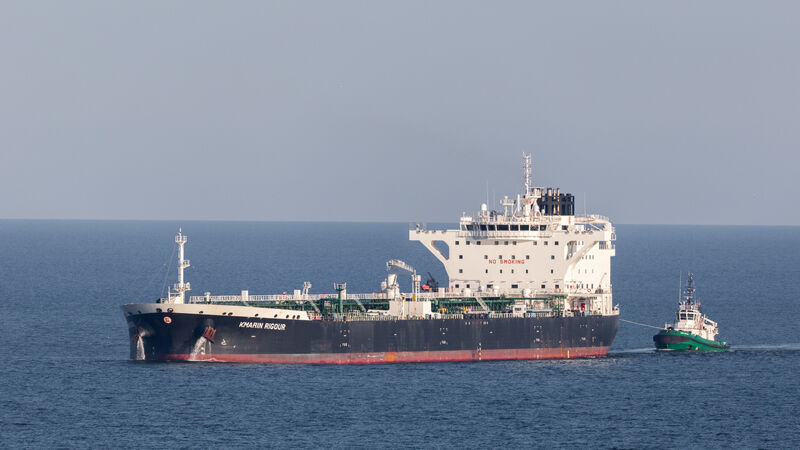Oil's drop below $75 a barrel won't stop costs rising for Irish consumers and businesses

Oil tanker the Kmarin Rigour makes its way into Cork Harbour escorted by the tug DSG Titan after its voyage from Texas with a supply of crude for the refinery at Whitegate, Co Cork. Picture: David Creedon
The price of crude oil fell sharply to below $75 a barrel but the significant price increases already recorded in recent times are set to feed into higher costs for Irish motorists, households, and Irish businesses.
The global benchmark Brent crude briefly touched new three-year highs on Tuesday before falling back sharply amid uncertainty whether the rebound in the global economy after the Covid-induced slump will continue at its recent pace.











